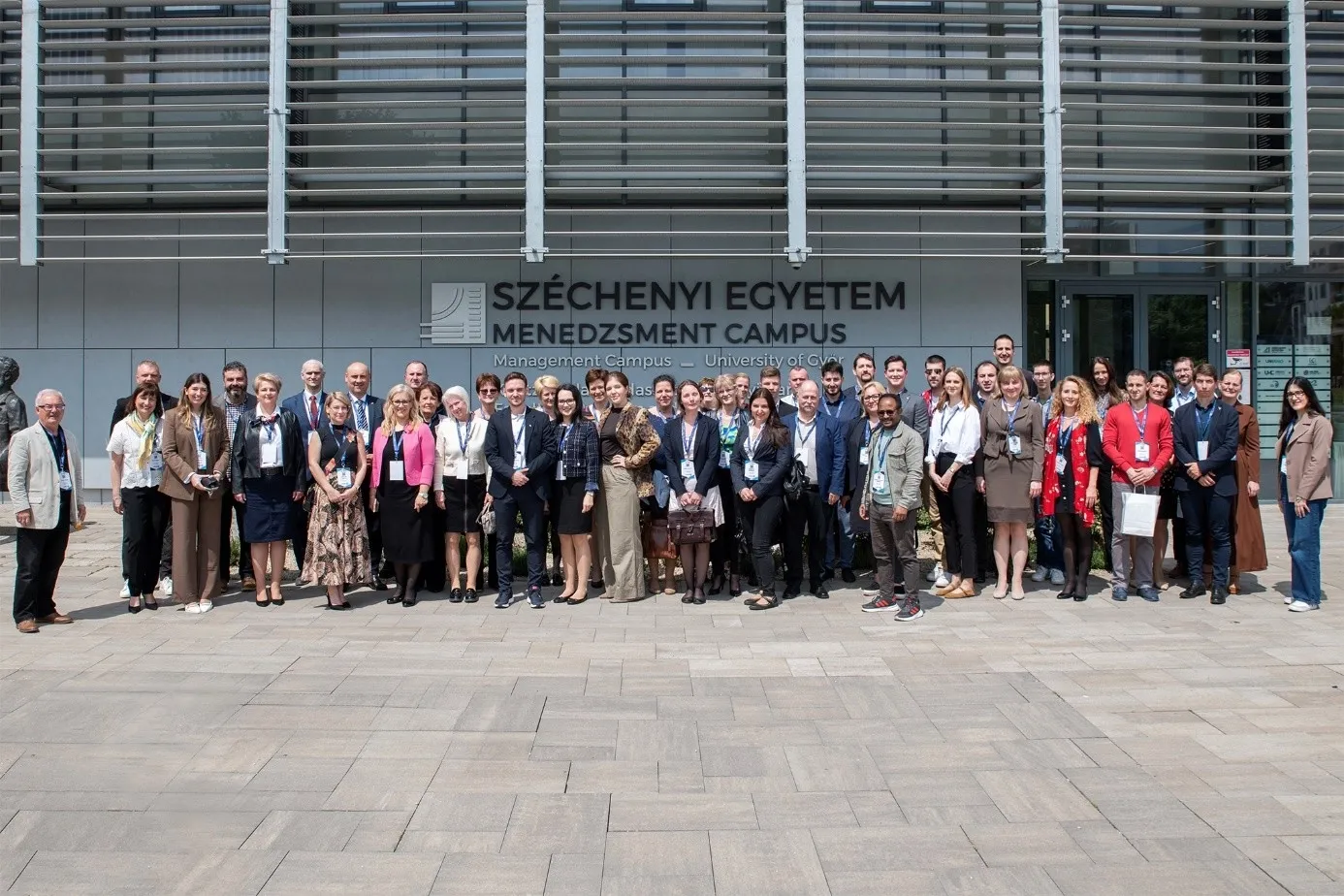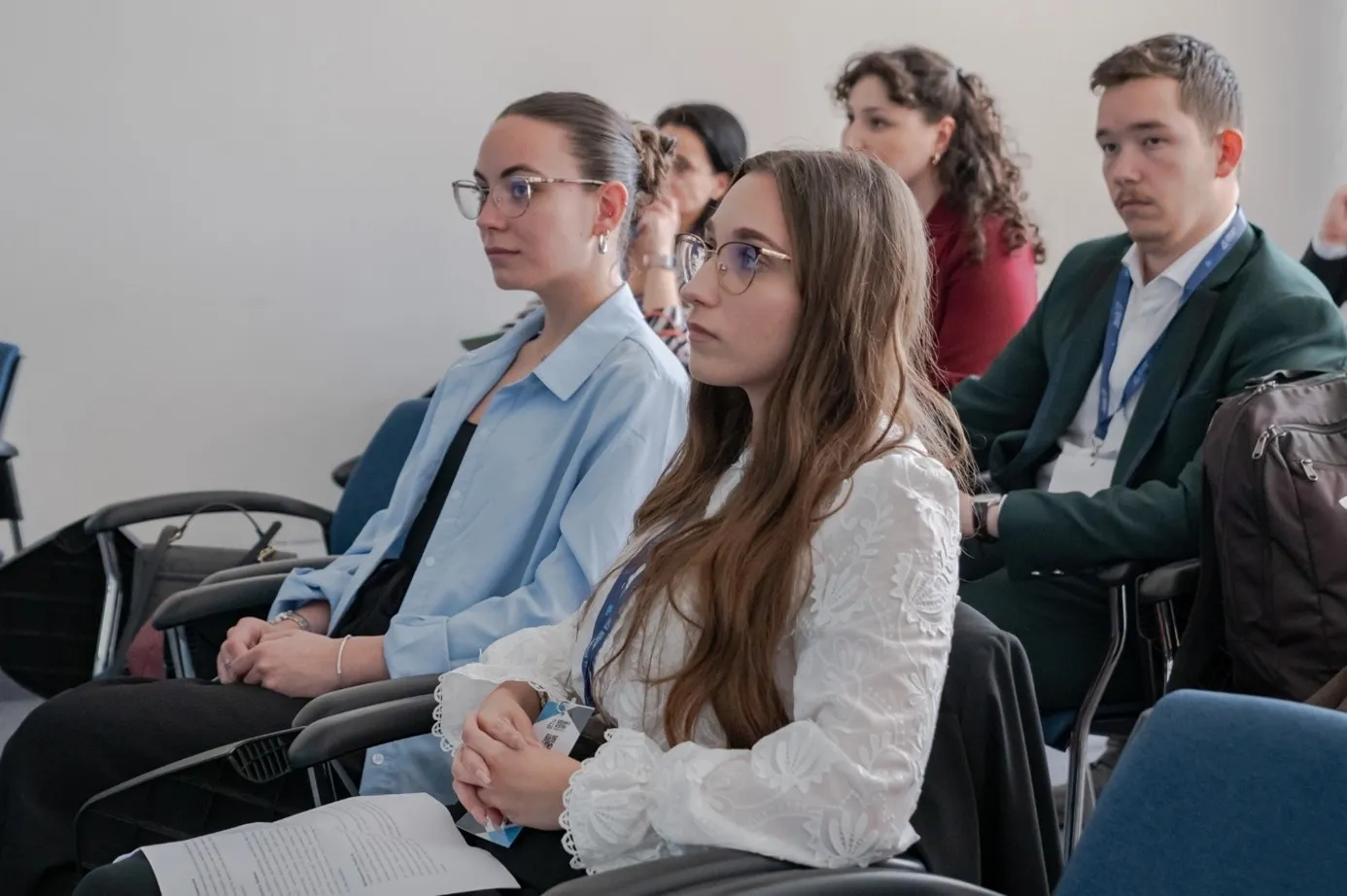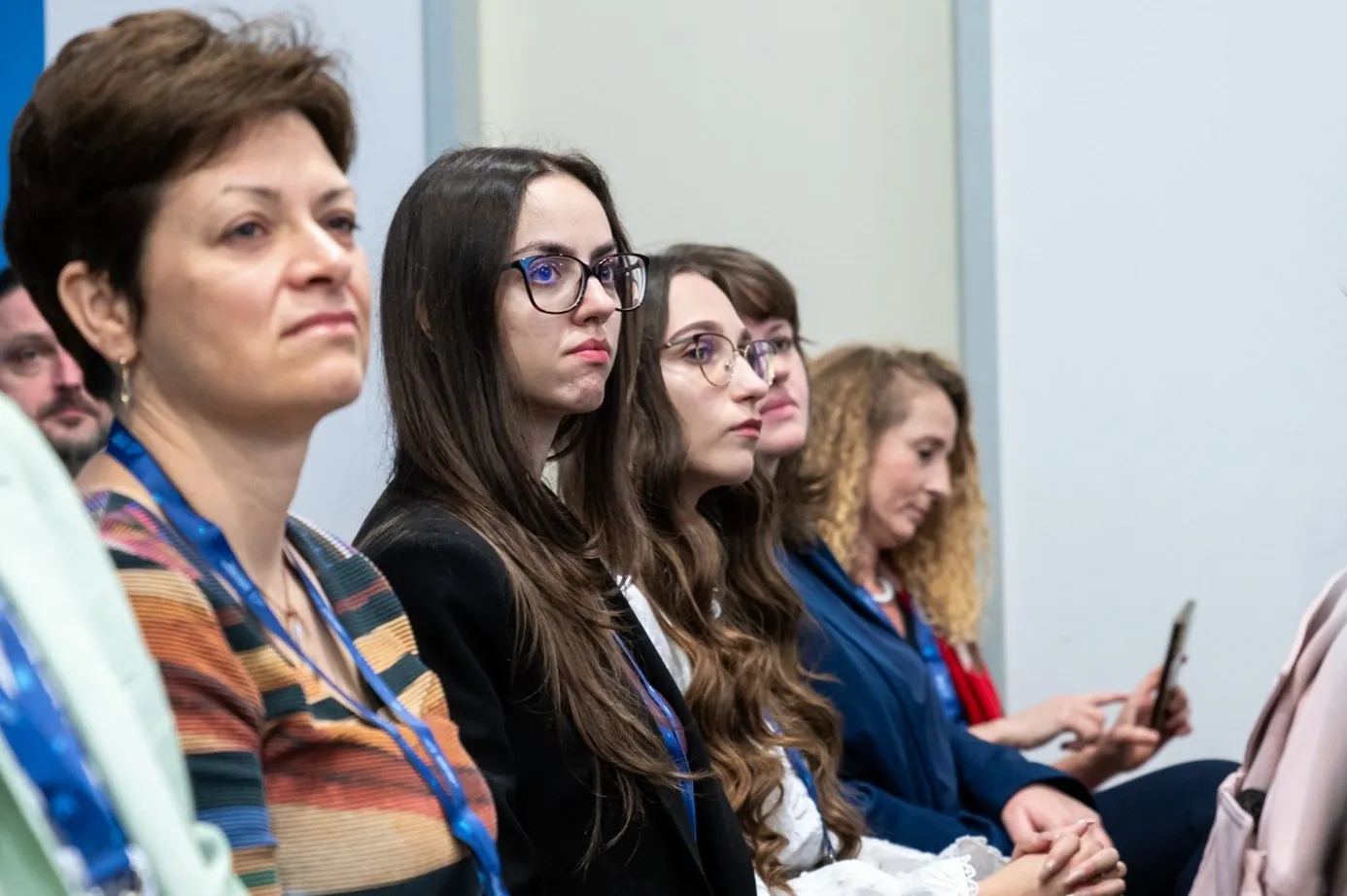SZE’s International Conference Focusses on Technological, Educational and Social Challenges
Approximately 160 researchers from 14 countries participated in an international conference organized by the Apáczai Csere János Faculty of Pedagogy, Humanities, and Social Sciences at Széchenyi István University. The event focused on the technological, educational and societal challenges of a changing world, addressing topics such as artificial intelligence, digital transformation, and sustainability.
This conference marked the most significant international event in the history of the Apáczai Faculty and was held at the University’s Management Campus. Titled the International Conference on Technological, Educational, Social and International Challenges in the Changing World – TESIC, the gathering welcomed participants not only from Hungary but also from 13 other countries, including India, Canada, Germany, Portugal and Serbia.
In her opening address, Dr Eszter Lukács, Vice President for International Affairs and Strategic Relations at the University, emphasized that the publications based on the conference presentations would appear in esteemed international journals, significantly contributing to the University’s academic output. “The aim of the conference is to provide a scientific platform for researchers, professionals and decision-makers to explore solutions to the complex challenges of today’s rapidly evolving world,” she stated. “Accordingly, it focuses on crucial topics such as digital transformation, the importance of international collaboration, cybersecurity, and sustainable development—areas that Széchenyi István University treats as strategic priorities in both its educational and research initiatives.”
Dr Júlia Szőke, Vice Dean for Scientific and International Affairs at the Apáczai Faculty and Chair of the Conference, noted in her welcome speech that the two-day event was organized to reflect an interdisciplinary approach, allowing for the representation of numerous academic fields. “This multidimensional perspective mirrors the complex nature of the challenges we face today,” she remarked. “We are pleased to have brought together a motivated scientific community of researchers from nearly thirty institutions through this event.”

Researchers from 14 countries attended the international conference at Széchenyi István University. (Photo: Bettina Korinek)
The opening keynote lecture was delivered by Dr Marcelo Rudolfo Calvete Gaspar, Deputy Director of the Centre for Sustainable and Accelerated Product Development at the Polytechnic Institute of Leiria, Portugal, and Head of the Industrial Management and Engineering Programme. In his presentation titled The Impact of Artificial Intelligence on Higher Education, he discussed historical industrial and technological revolutions, as well as the development of artificial intelligence. “The key difference between past waves of innovation and today’s modern technological advancements is that whereas previous revolutions mainly replaced monotonous, physical labour, artificial intelligence is now significantly influencing creative fields such as higher education,” he explained. “AI has become part of our daily lives—whether we like it or not. As educators, we have a responsibility to understand this technology deeply and harness it to our advantage.”
According to Dr Gaspar, the digital revolution is not intended to produce results effortlessly or instantly, but rather to encourage alternative approaches to problem-solving and facilitate improved solutions. He also offered practical advice on software and applications currently available to support scientific work and emphasized that universities have a duty not only to regulate the use of such tools but also to integrate them into their educational methodologies.

Dr Marcelo Rudolfo Calvete Gaspar, Dr Júlia Szőke and Dr Attila Pongrácz, Dean of the Apáczai Faculty, at the event (Fotó: Nagy Gergely)
The second keynote on the opening day was held online by Professor Gagan Deep Sharma from Guru Gobind Singh Indraprastha University in New Delhi. A prominent figure in international rankings and collaborations at his institution, Professor Sharma played a key role in the university’s debut on the Quacquarelli Symonds global rankings. In his presentation, he highlighted that higher education today functions as an inspiring international ecosystem fostering the development of ideas, values, and innovations.
He argued that adaptability and flexibility—particularly with regard to embracing a global mindset that transcends national boundaries—are among the most important attributes of future-ready universities. “It is vital to integrate students into laboratory work, link faculty members with startup ventures, and ensure that every thesis, diploma project and dissertation contributes to tangible scientific outcomes aimed at improving the world,” he said. He also noted that, alongside research dissemination, one of the cornerstones of international success is a university’s clear market positioning and consistent brand strategy, which every ambitious institution should prioritize.


Throughout the two-day event, plenary sessions and thematic panels were held for the approximately 160 participants. (Photos: Gergely Nagy, Bettina Korinek)











